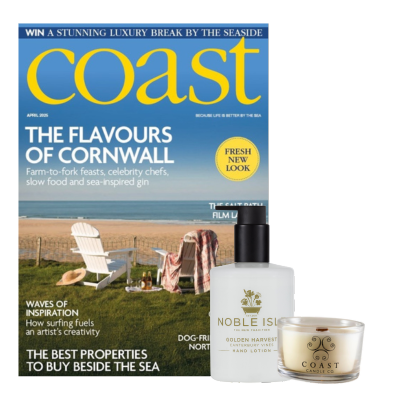The Marine Conservation Society has released the results of their latest report on the state of Britain’s beaches. Words Ginny Weeks.
In September 2014, over five thousand volunteers cleaned and surveyed 301 beaches, discovering 2,457 pieces of litter per kilometre of beach. This represents the highest figure recorded in the Beach Clean’s 20-year history, up 20 per cent from 10 years ago.
According to the MCS report, UK coastline rubbish rose by 6.4 per cent from 2013 to 2014, with Wales experiencing the highest increase, followed by England. Some good news, however, is that litter volumes in Scotland and Northern Ireland actually fell.
Welsh beaches are currently the dirtiest in the UK with more than two and a half times more litter than the UK average. Litter on the Welsh coastline has increased by 46 per cent.
In the UK, most litter was found in the South West (3,327 pieces), with the least in the North West (1,221). Scotland recorded an eight per cent fall in litter, and Northern Ireland’s figure dropped by 77 per cent.
Most of the litter found on beaches starts in the bathroom and wet wipes are one of the worst offenders. In 2014 the number of wet wipes found on UK beaches increased by more than 50 per cent compared to 2013. This represents 35 wet wipes for every kilometre of beach.
MCS believe that this is down to a misconception that wet wipes (including face wipes and make-up removal wipes) are flushable. This is not the case. Wet wipes don’t break down like toilet tissue because they are made of tougher fibres (some even contain plastic). Sanitary items and cotton bud stick finds have also increased by 20 per cent.
So what can we do?
A representative from MCS advises: '‘Literally don’t put anything down the loo that isn’t pee, poo or paper! If we all kept to that simple rule our beaches would be a whole lot cleaner.’’
'‘We’ve been working with water companies to find ways of helping customers understand why baby and face wipes should not be put down the toilet. Water companies estimate that about 70% of blockages are avoidable, and disposing of wipes in the bin and not the loo could make a real difference in keeping drains clear.’’
The MCS are also highlighting the dangers of microplastics. Plastics from toiletries such as shower gel and toothpaste are having a devastating effect on marine life when fish and other sea creatures ingest these particles. Join the Plastic Challenge community on mcsuk.org/plasticchallenge and #plasticchallenge.
The Marine Conservation Society has released the results of their latest report on the state of Britain’s beaches. Words Ginny Weeks.
In September 2014, over five thousand volunteers cleaned and surveyed 301 beaches, discovering 2,457 pieces of litter per kilometre of beach. This represents the highest figure recorded in the Beach Clean’s 20-year history, up 20 per cent from 10 years ago.
According to the MCS report, UK coastline rubbish rose by 6.4 per cent from 2013 to 2014, with Wales experiencing the highest increase, followed by England. Some good news, however, is that litter volumes in Scotland and Northern Ireland actually fell.
Welsh beaches are currently the dirtiest in the UK with more than two and a half times more litter than the UK average. Litter on the Welsh coastline has increased by 46 per cent.
In the UK, most litter was found in the South West (3,327 pieces), with the least in the North West (1,221). Scotland recorded an eight per cent fall in litter, and Northern Ireland’s figure dropped by 77 per cent.
Most of the litter found on beaches starts in the bathroom and wet wipes are one of the worst offenders. In 2014 the number of wet wipes found on UK beaches increased by more than 50 per cent compared to 2013. This represents 35 wet wipes for every kilometre of beach.
MCS believe that this is down to a misconception that wet wipes (including face wipes and make-up removal wipes) are flushable. This is not the case. Wet wipes don’t break down like toilet tissue because they are made of tougher fibres (some even contain plastic). Sanitary items and cotton bud stick finds have also increased by 20 per cent.
So what can we do?
A representative from MCS advises: '‘Literally don’t put anything down the loo that isn’t pee, poo or paper! If we all kept to that simple rule our beaches would be a whole lot cleaner.’’
'‘We’ve been working with water companies to find ways of helping customers understand why baby and face wipes should not be put down the toilet. Water companies estimate that about 70% of blockages are avoidable, and disposing of wipes in the bin and not the loo could make a real difference in keeping drains clear.’’
The MCS are also highlighting the dangers of microplastics. Plastics from toiletries such as shower gel and toothpaste are having a devastating effect on marine life when fish and other sea creatures ingest these particles. Join the Plastic Challenge community on mcsuk.org/plasticchallenge and #plasticchallenge.







